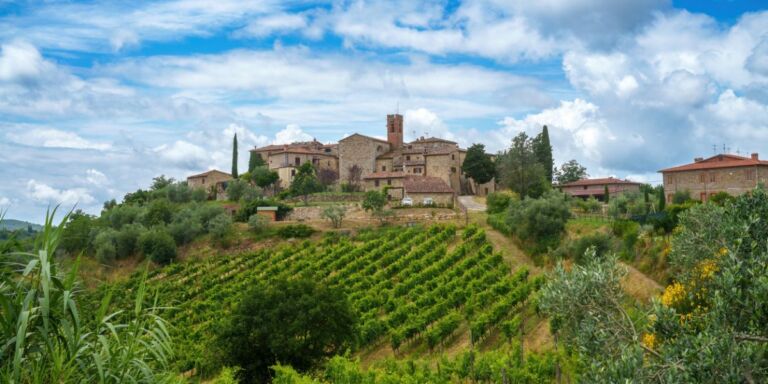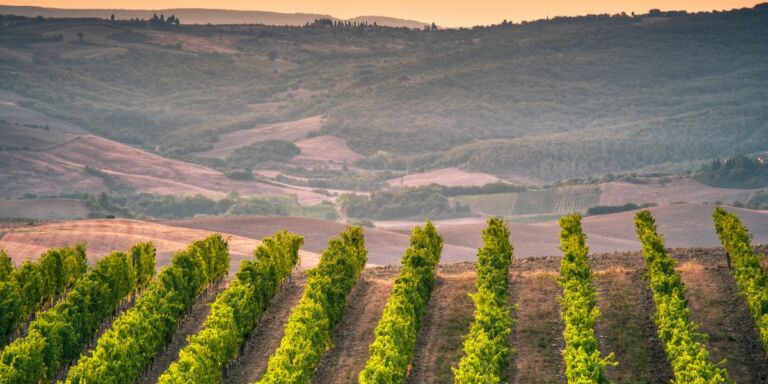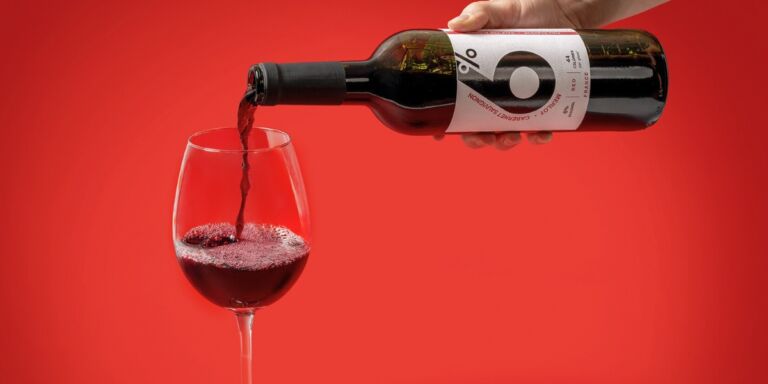Daniel Boulud is fond of saying he lives ‘above the shop’. The shop in question, however, is not a humble bouchon in his native Lyon: its address is 60 E 65th Street, on Manhattan’s opulent Upper East Side. Restaurant Daniel, the flagship of his fleet, holds two Michelin stars and is regularly ranked among New York’s top five; in 1998, Boulud took over the building from Le Cirque, where he had once been head chef, to launch his own place, and the apartment above the restaurant has been his Manhattan home ever since.

Boulud’s latest project would have been ambitious even without the chaos wrought by the Covid pandemic. Housed in the new $3bn One Vanderbilt Plaza skyscraper, between Grand Central and the Chrysler Building in Midtown, Le Pavillon boasts 17-metre-high ceilings, acres of blond wood and dozens of trees – rus in urbe. The place has a decidedly Japanese aesthetic and a menu that is fashionably heavy on seafood and vegetables and light on meat – ‘although we cook a very nice côte de boeuf as well’, says Boulud. ‘I love the fact that four out of five diners will choose seafood and vegetables, but we’re not a spa restaurant, there’s no tasting menu, and we’re open for lunch and dinner. I want it to be a restaurant for New Yorkers, as well as visitors.’
Le Pavillon is named in homage to the restaurant of the same name that opened in New York for the World’s Fair in 1939 and remained until 1972. ‘It was a huge success,’ Boulud says. ‘It really took French fine dining to New York, and their kitchens trained thousands of young chefs. We are not trying to replicate the original, though – just to acknowledge its legacy. My idea for the new Le Pavillon was to create a connection with a new generation of diners but also to indulge my passion for seafood and vegetables.’
I get told that fine dining is over, but I don’t think so. A great meal will always spark memories
Boulud is keen to emphasise that Le Pavillon’s menu is not a kneejerk response to any perceived trend towards meat-free dining, pointing out that he has been scouring the East Coast and elsewhere for top-notch seafood since he was at Le Cirque. ‘And my menus at Café Boulud 23 years ago included one named Le Potager – “kitchen garden” in French – which was completely vegetarian.’
Those early days as a chef-proprietor still resonate with him today. ‘One of my other menus – Le Voyage, which could feature dishes from Louisiana, Mexico, Greece, Vietnam – was partly based on the different nationalities we had in the kitchen. Of all my restaurants, it was the most exciting. I felt like I was conducting a full orchestra. In any case, there is never just one trend in food anymore: the world is more complicated than that. New York is famous for its steakhouses, for example, and I don’t see them going bust anytime soon.’

Unlike many great chefs, Boulud is also a first-class businessman whose various restaurants appeal to a wide range of tastes and budgets. The pandemic, however, has forced him to rethink his operations – and the nature of fine dining itself. ‘I get told that fine dining is over, but I don’t think so. A great meal will always spark memories: it might just be in a different form in the future – less pomp and circumstance, perhaps, but still with precision, refinement and attention to detail. A good meal with good wine and friends – that is what we all crave right now.’
Boulud’s training as a chef could hardly have been more traditionally French. Born and raised on a farm outside Lyon, at the age of 14 he apprenticed under two-star chef Gérard Nandron, a great friend of the legendary Paul Bocuse, who would come into the restaurant for coffee. A year later, Bocuse asked Nandron if he could borrow some apprentices, and Boulud found himself in the kitchen of L’Auberge du Pont de Collonges, Bocuse’s gastro-temple on the banks of the Saône.

Nearly 30 years older than Boulud, Bocuse had trodden a similar path: his mentors included Mère Brazier, the formidable, self-taught chef who, along with many other mères de Lyon, had kept the flame of classic Lyonnais cooking alive. In the mid-1970s, Bocuse took Boulud under his wing, and they formed a firm friendship that lasted until Bocuse’s death in 2018. As an ambassador for classic French gastronomy, bundling up his knives and travelling to the US, Boulud had an impeccable pedigree: ‘It was in my DNA, and I carried it over the Atlantic.’
Growing up among the stellar appellations of Burgundy and the northern Rhône, young Boulud took an early shine to wine, too, ‘although the wine we made on the family farm was much more humble. Our farm was in the hills, not on the plains, so we kept animals, made cheese, and grew vegetables and grains – classic mixed farming. And we had a vineyard as well.’ The vines were planted not to Pinot Noir or even Gamay but to Baco Noir, a cross between Folle Blanche and a North American vine, created in the late 19th century to resist the predations of phylloxera, which was sweeping through France at the time. ‘It was raw and tannic – brut de décoffrage, as we say in French, rough around the edges – and we had three 675-litre barriques. Each September, I helped my father fill them, and I was in charge of tapping bottles from the barrel. It stained everything it touched; to be honest, it was like drain cleaner. Put it this way, I don’t think Riedel has made a glass for it.’
There is often an underlying sweetness in American dishes. My palate is French, so I am more tuned in to mustard, horseradish, acidity
With his wages from Nandron, Boulud could explore the crus of Beaujolais on his motorbike, and they are wines he still enjoys today. ‘I can get as much pleasure from a bottle of Beaujolais from one of our small suppliers as I do from a grand bottle of Burgundy,’ he says. Today’s diners, Boulud thinks, look for provenance as much on the wine list as on the main menu. ‘It wasn’t always that way in Beaujolais. As a grape grower, you used to have a choice between selling to the local cooperative or to Georges Duboeuf, who, by the way, did a lot for the region. “Go big, or go broke” was the message. But now we have relationships with many small producers who are as passionate about their wines as our artisanal suppliers are about their cheeses or charcuterie. And our diners appreciate that.’
He earned his spurs in New York as head chef at a string of smart hotels, then as the much-lauded head chef at Le Cirque, but – thanks to his upbringing in Lyon, where good food is a birthright, regardless of your station in life – Boulud has always had the knack of understanding more mainstream dining, too.

Famously, in 2001, he launched the DB Burger, its patty studded with slow-cooked short rib, foie gras and black truffle: it spawned a host of copycat gourmet burgers and is still on his menus today. ‘The thing you have to understand when you look at a dish like a hamburger,’ he explains, ‘is to take pride in it. Use classic combinations of flavours, use impeccable ingredients, and don’t let any one flavour overwhelm the others. The tomato sauce, for example, is reduced and reduced, so it is very intense, but we use very little.’
Boulud concedes that Americans have a different palate from his. ‘It depends on the type of food, but there is often an underlying sweetness [in American dishes]. My palate is French, so I am more tuned in to mustard, horseradish, acidity – like the classic Troisgros dish of salmon with sorrel, for instance. That had so much acidity from the reduction of white wine that I’m not sure it would have worked in the USA.’

Dinex Group, his 19-strong restaurant empire, spans North America from Miami to Montreal, with outposts in Dubai, the Bahamas and Singapore. While they all have the Boulud DNA, ‘it’s important that they aren’t just cookie-cutter places,’ he says. ‘We curate each menu and try new things everywhere we go.’ One high-profile site has recently closed, however: Bar Boulud at the Mandarin Oriental in London. ‘First they had the big fire, then the pandemic… It became very difficult.’ But Boulud still has a hankering to open another restaurant in the city. ‘I love London. I can get all the produce I want from France, as well as amazing seafood – the Dover sole you get in London is superb – so I can’t wait to do something there again.’

While the Baco Noir of his childhood came from America to France, lending vigour to moribund French vineyards, Boulud’s journey has been in the opposite direction but with a similar purpose: exporting French savoir-faire to reinvigorate American haute cuisine – although you might not want to accompany a plate of food from Boulud fils with a glass of wine from Boulud père.
But his proudest achievement, Bouloud thinks, is training a new generation of chefs. ‘[It’s] a family, really. If you look at any new, good restaurant in New York, you can bet for certain that the chef has learned his or her trade in one of New York’s best kitchens. I am thrilled that so many of them come to my restaurants to learn their craft.’








